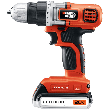If you are used to paper filing, you may find it somewhat difficult to switch to computer filing. The first thing to become familiar with is the fact that you no longer can physically handle correspondence. No physical document and no filing cabinet! Once you are used to doing it electronically, you won't want to go back to physical filing.
- Where to start. To prevent folders to be created in many different places on the computer, Windows offers its My Documents, or just Documents, as the filing cabinet for its users. A shortcut on the desktop or in the start menu gives immediate access to all your folders and files.
- Naming folders. Think and plan before you create new folders. Make a list of all the main topics E.G. Training, Meetings, Projects, Personnel. Be as specific and descriptive as possible. When you are not at the office and someone else need access to those files, they don't want to spend hours figuring out what all your clever codes mean.
- Separate personal files from business. Never mix your personal folders with the business files. Keep personal and business folders separate. Don't store confidential personal information on the business' computer. If you have to do something in a personal folder, place it on a memory stick and copy the files to your personal computer as soon as possible.
- Topics and levels can help. The next level will be the topics for each folder. Your Training folder should hold the different training courses the company offers, scheduled dates for each course. Once a folder holds more than 50 folders, it is time to split it in smaller portions. People are too lazy to scroll down, when they don't see the file on the screen immediately, they assume that it is not there.
- Don't forget to backup your system. Your hard disk damaged and all your hard, important work gone! Regular backups is high priority for any computer user. Don't backup to the same disk you are working on, backup to a CD or DVD on a regular schedule. The IT department of large companies automatically schedule time to backup the system. It is advisable that you make regular backups too to ensure no important data get lost. Keep the backups in a safe place, not in the drawer of the desk or in your handbag. Because all your folders are saved in one place, backups is easy as you need only specify the Documents folder with its sub-folders and it's done.
- Keep up with your system. The best filing system in the world is useless unless you keep it up. Save files in the correct folder immediately to avoid a lot of frustration to try and figure out where which documents should be filed. Time is money and time is precious.
Author Bio
Hettie Woehler
Hettie lives in Mokopane, South Africa. She writes articles for a country-wide monthly newspaper, The Vessel. She self-published a devotional book in 1993 and writes a regular column, Hettie's Chatterbox, for the S.A. Neuromuscular Foundation. Learn more about Hettie...
Electronic Filing
Did you know that electronic filing is suitable for the storage, cataloguing, and retrieval of documents such as letters, ...
Discover More
Easy Carpet Cleaning
The carpets used today can be made from a variety of different materials. These materials can range from wool to nylon. ...
Discover More
Mold Cleaning Strategies
With just the slightest bit of moisture, and a little bit of darkness, you can easily find yourself faced with a mold ...
Discover More
Online Filing
Recently there has been a shift towards online filing, also known as cloud filing. Often times this means that you no ...
Discover More
Organizing Electronic Files
Finding space free on your computer's hard drive does not have to be difficult. Keeping electronic files organized will ...
Discover More
Filing Services
Filing services can help provide a much needs service for just about any type of business. These services can come in and ...
Discover More

Comments